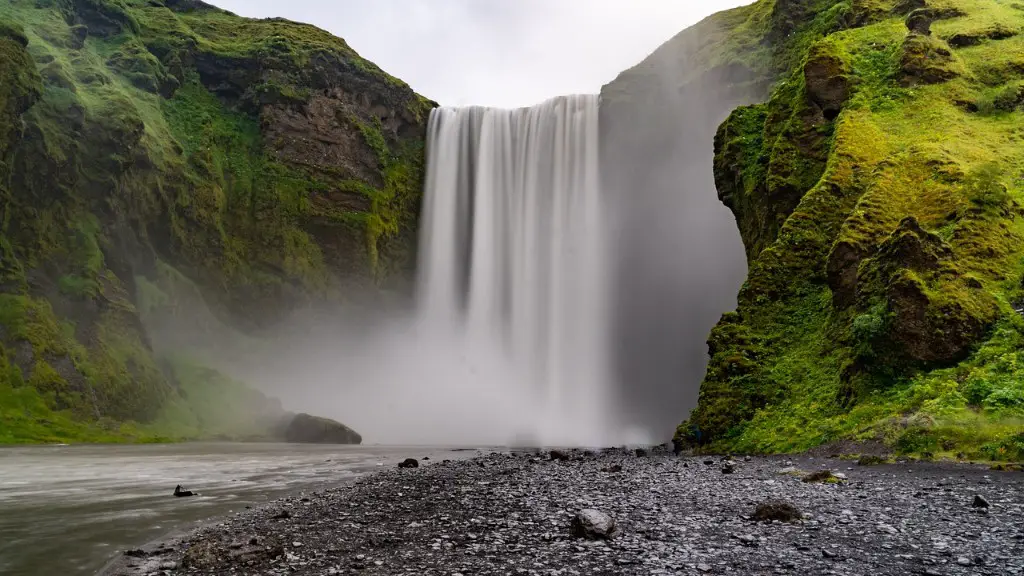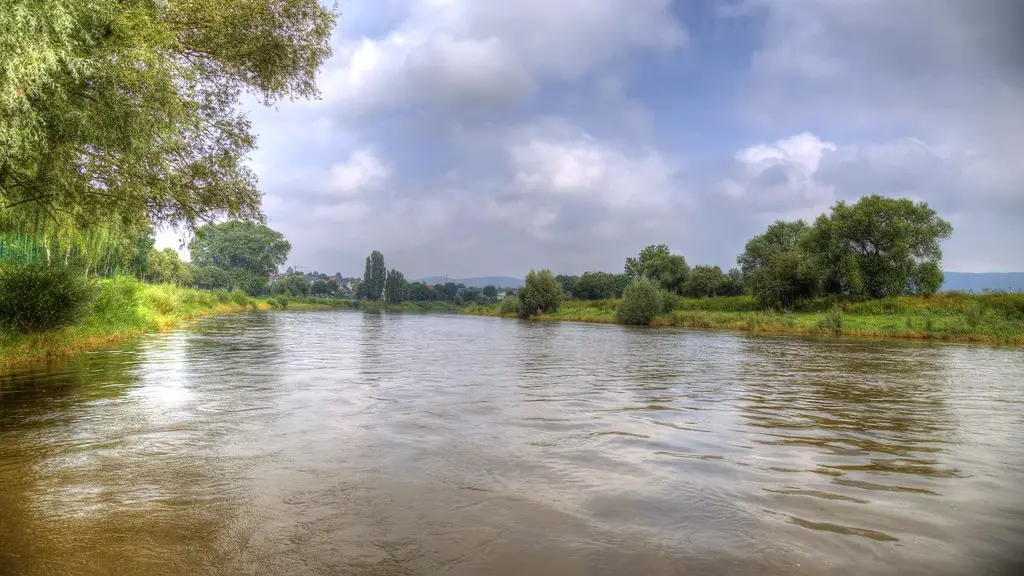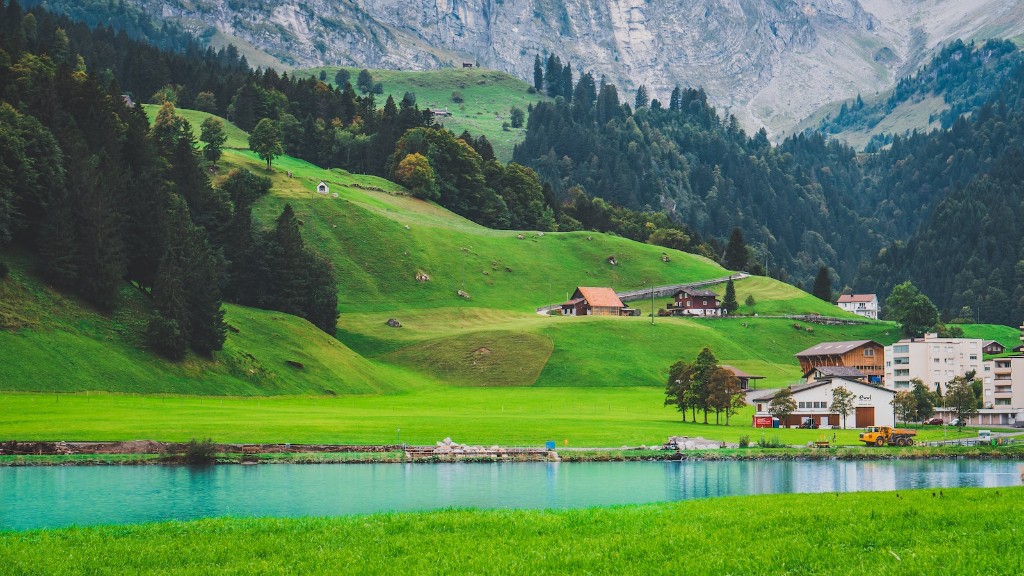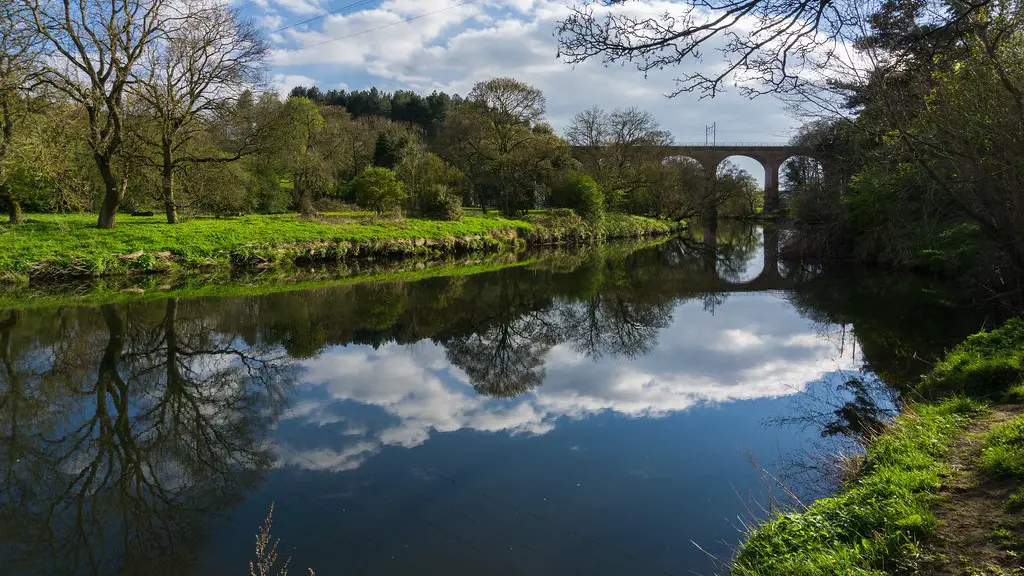Egypt is a highly unique country for many reasons, nevertheless a lot of its uniqueness can be attributed to its dependence on the Nile River. The Nile River is by far one of the most important rivers in the world and its influence on Egypt is astounding. It’s been vital for centuries to the very foundation of Egypt’s political and social structures.
The Nile River is the lifeblood of Egypt. It has provided the resources and supplies necessary for survival in Egypt going back thousands and thousands of years. It’s the sole source of irrigation and farming and even the basis of their religion. From its banks have come the water, food and other necessities that have allowed Egypt to remain a major power in the world even to this day.
Egypt is primarily an arid desert and the few areas of arable land are primarily located along the banks of the Nile. The river’s natural tendency to flood every year, made it an ideal area for farmers to grow their crops. The river’s annual flooding brought along with it fertile soil, which meant abundant harvests for Egypt throughout its history. In fact, the Egyptians were the first civilization to use irrigation, which allowed them to completely maximize this resource. This abundance from the river provided Egypt with enough food to adequately feed its ever-growing population.
In addition to agriculture, the Nile was also an important route of transportation for Egyptians. Through the river, Egyptians were able to transport goods and merchandise from one place to another. Trade and commerce were also facilitated due to the river, as it enabled merchants to reach many different places. Hence, it’s safe to say that the Nile was an integral and important part of the economy of ancient Egypt providing resources it needed to develop and thrive.
Construction
The Nile was not just a lifeline for Egypt; it was one of the most important sources of construction materials. Granite and limestone, among other materials, were shipped up and down the river which enabled Egyptians to construct some of the most magnificent monuments of their time. Mesopotamian stone was even transported up the river to build the Great Pyramids of Giza.
Moreover, the river played a part in Egypt’s monumental building schemes. As the waters of the Nile overflowed yearly, it deposited sedimentary deposits along the banks of the river. This allowed the Egyptians to build their settlements close to the river, as these sediments created areas of relatively stable ground from which to construct upon.
The Great Pyramids, for example, were built for the pharaohs of that time who were considered gods; so it was important for the workers to establish a solid foundation. This included digging large channels in the surrounding earth to contain the river which would stabilize the ground and create the soft mud that would form the bedrock of the pyramids.
Political Power
Moreover, the Nile’s immense political importance lies in its ability to establish the Pharaoh as a powerful political leader. The Pharaoh had control over the river. They commanded when and where it would overflow and when it would be diverted or blocked to create a reservoir. This control enabled them to manipulate the Egyptian population and gain a great deal of political power.
This power was evident in the form of taxes and other regulations levied in regards to the river by the Pharaoh. For example, taxes were imposed on goods transported along the river and on the use of any of the river’s resources. Further, the Pharaohs commanded the construction of the many irrigation and irrigation-related projects found in Egypt.
Moreover, navy fleets were created by the Pharaohs to protect the Nile River. This enabled them to expand the borders of their empire in the region and also enabled them to interact with far-off lands, such as in Nubia, Lebanon and Syria, in order to trade and exchange goods. Thus, the Pharaohs had a large degree of control over their people and by extension the greater region.
Religious Significance
The Nile was also one of the most important religious sites in the ancient world. It was home to various religious rituals and ceremonies that took place in its watershed. The gods and goddesses of ancient Egypt were closely associated with the river and many ancient Egyptian artifacts depict religious figures with the river in the background.
The Egyptian creation myth, for example, states that the god Ra created the world from a mound that rose from the muddy waters of the river. This myth speaks to the importance of the river to the ancient Egyptians and suggests that they saw it as a source of life and creation.
Moreover, other gods and goddesses of the Egyptian pantheon were closely associated with the river. Hapi, the god of the Nile, was honored by the Egyptians for providing them with much-needed waters and nutrients to their land. Osiris, the god of the afterlife and resurrection, was closely associated with the Nile due to his connection to the fertility of the soil.
Modern Uses
The Nile continues to be the lifeblood of Egypt even in the modern day. It provides 97% of the water consumed in Egypt and is the source of almost all of the country’s electricity. Hydroelectric dams, such as the Aswan Dam and the High Dam, have been built along the Nile to provide electricity as well as help control and manage the river’s flooding.
Moreover, the continued use of the river for agricultural purposes has been integral in the country’s economic development. The river’s always-sufficient waters have meant that farmers can produce the maximal amount of crops and generate high yields, thus enabling Egypt’s agricultural industry to remain strong and competitive.
Furthermore, the increasing demand for water in Egypt has resulted in the utilization of the Nile as a source of drinking water. Water-purification methods have been developed in order to make the river’s waters safe for human consumption.
Environmental Effects
However, it is also important to note that the Nile is not without its environmental drawbacks. The growth of industrialization in the modern world has resulted in an increase in pollutants and sediments entering the river, thus negatively impacting its waters and the ecological communities living within them.
In addition, the hydroelectric dams along the river have had a more profound effect on the river’s wildlife and on the lands surrounding it. The dams have caused a decrease in the amount of water reaching parts of the Nile, disrupting previously stable ecosystems and leading to decreased populations of certain animal species.
Overall, the Nile River continues to remain an important source of sustenance for the country of Egypt; but it is important that the river is taken care of and monitored in order to ensure that it does not go neglected. It is a powerful gift from the gods that has enabled Egypt to become the great world power that it is today and must be taken care of.
Impact on Future
The role of the Nile will become even more important in the future as the effects of climate change begin to make themselves felt in Egypt. By 2050, it is estimated that the average temperature in Egypt could rise by as much as 4-5 degrees Celsius. This increase in temperatures, coupled with a decrease in rainfall, would drastically reduce the amount of water available to Egypt. The Nile River would become an even more important source of water, food and energy for the growing population of the country.
Therefore, it is important that the government takes into account the effects of climate change and takes the necessary steps to ensure that the river is monitored and taken care of. The development of renewable energy sources and water-saving initiatives will be of paramount importance in the years to come in order to ensure that the Nile remains a source of life and abundance for the people of Egypt.
International collaboration
The severity of the situation in Egypt has been recognized by the international community and there have been efforts to provide help for the people of the country. The establishment of various international organizations, such as the United Nations Environment Program’s Hydropolitics Project, which is aimed at developing sustainable water management systems, is a step in the right direction. Moreover, the World Bank Group has also provided over $5 billion in loans to Egypt, to be used in infrastructure projects such as developing irrigation systems and building desalination plants.
By utilizing the expertise of the international community, Egypt can strive towards a greener and more sustainable future. However, this will require dedication from the governing bodies of the country and an effective dialogue between the citizens of Egypt and their international partners in order to ensure that the river remains an essential part of the country’s development and prosperity.
Conclusion
To conclude, the Nile River has been an incredibly important resource for Egypt and the world since ancient times. Its waters have provided sustenance to the people living on its banks and while it has enabled Egypt to become one of the great powers of the world, it remains vulnerable to the effects of climate change. It is therefore important that the people of Egypt work with the international community to ensure that the river is taken care of and that its water sources remain clean and safe for future generations.





